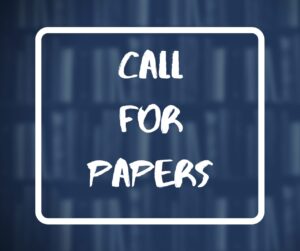Transformative Education for Sustainable Futures: Leadership, Curriculum Development and Pedagogical Approaches in Higher Education Towards UN Agenda 2030
Education for Sustainable Development (ESD) catalyses achieving the sustainable development goals (SDGs) by aligning the curriculum with the SDGs. The SDGs framework allows HEIs to incorporate broad, holistic, and flexible approaches into curriculum planning and design. There is a need to sensitise the global community to produce, adapt, and apply sustainability knowledge to the global challenges. It is crucial that higher education institutions (HEIs) explore how to embed sustainability principles into the university curriculum (Leal Filho et al., 2020). In addition, the full utilisation of technical, organisational, and pedagogical drivers in HEIs facilitates, supports and transforms instructional and pedagogical processes (Zhao et al., 2002). As the focal point of teaching and learning in HEIs, pedagogy entails analysing various strategies and assisting educators in enhancing and innovating the art of teaching. Adopting multi-disciplinary pedagogies enables students to develop sustainable knowledge and critical competencies in sustainability including anticipatory, normative, strategic, systems-thinking, and interpersonal abilities (Wiek et al., 2011).
Higher education institutions (HEIs) can provide students with the knowledge, skills, and attitudes to become responsible, active citizens who can handle challenging sustainability concerns (Abo-Khalil, 2024). The Quality Assurance Agency for Higher Education (QAA) and the Higher Education Academy (HEA) collaborated to produce practical guidance notes for higher education providers on how to sustainably develop and improve students’ knowledge, understanding, and skills considering the significance of ESD (QAA, 2014). Some countries have integrated sustainability education into their operations, research, and teaching (Abo-Khalil, 2024). Studies have explored sustainability implementation methodologies for learning, stakeholder engagement and monitoring (Ramísio et al., 2019; Abo-Khalil, 2024), challenges and opportunities of participatory pedagogies (Andersen and Ponti, 2024), and characteristics, barriers and enablers of ESD in HEIs (Vargas-Merino et al., 2024). This special issue calls for contributions on ways to enhance ESD integration in higher education leadership, pedagogies and curriculum development to uncover critical implications for quality education (SDG 4).
List of Topic Areas
- Sustainable Development Goals in education
- Higher education curriculum development and the SDGs
- Sustainable leadership in higher education
- Sustainability Competencies and SDGs
- Leadership in Higher Education and Capabilities
- Transforming Higher Education for Sustainable Development
- Higher Education’s progress towards the SDGs
- Pedagogical Leadership and Approaches in Higher Education
- STEM Education for Sustainable Development
Submissions Information
Submissions are made using ScholarOne Manuscripts. Registration and access are available here.
Author guidelines must be strictly followed. Please see here.
Authors should select (from the drop-down menu) the special issue title at the appropriate step in the submission process, i.e. in response to ““Please select the issue you are submitting to”.
Submitted articles must not have been previously published, nor should they be under consideration for publication anywhere else, while under review for this journal.
EOI and abstract ( 250 words max.) should be submitted to Prof. Alex Opoku (aopoku@sharjah.ac.ae) in the first instance for review and approval before submitting a full paper through the ScholarOne Manuscripts Review System. Approval of abstract does not guarantee that the full paper will be sent out for peer review. See the link below for guidance on how the abstract should be structured; https://www.emeraldgrouppublishing.com/journal/ijshe
Key Deadlines
Abstract submission Deadline: 31st March 2025
Notification of accepted abstract: 14th April 2025
Full paper submission Opens: 28th April 2025
Full paper submission Deadline: 29th August 2025
Guest Editors
Prof Alex Opoku, University of Sharjah, College of Engineering, United Arab Emirates, aopoku@sharjah.ac.ae
Dr Chioma Okoro, University of Johannesburg, South Africa, chiomao@uj.ac.za
Dr Yaning Qiao, University of Mining and Technology (CUMT), Xuzhou, Chinayaning.qiao@cumt.edu.cn
References
- Abo-Khalil, A. G. (2024). Integrating sustainability into higher education challenges and opportunities for universities worldwide, 10(9): e29946.
- Andersen, R. and Ponti, M. (2014), Participatory pedagogy in an open educational course: Challenges and opportunities. Distance Education, 35(2):234-249.
- Leal Filho, W.; Eustachio, J.H.P.P.; Caldana, A.C.F.; Will, M.; Lange Salvia, A.; Rampasso, I.S.; Anholon, R.; Platje, J.; Kovaleva, M. (2020), Sustainability Leadership in Higher Education Institutions: An Overview of Challenges. Sustainability, 12: 3761.
- Ramísio, P. J., Pinto, L. M. C., Gouveia, N., Costa, H. & Arezes, D. (2019). Sustainability Strategy in Higher Education Institutions: Lessons learned from a nine-year case study. Journal of Cleaner Production, 222: 300-309.
- QAA (2014). Education for sustainable development: Guidance for UK higher education providers, Quality Assurance Agency for Higher Education (QAA): Gloucester
- Vargas-Merino, J. A., Rios-Lama, C. A & Panez-Bendezú, M. H. (2024). Critical implications of education for sustainable development in HEIs – A systematic review through the lens of the business science literature. The International Journal of Management Education, 22(1): 100904.
- Wiek, A., Withycombe, L. & Redman, C.L. (2011), Key competencies in sustainability: A reference framework for academic program development. Sustainability Science, 6: 203–218.
- Zhao, Y, Pugh, K. J, Sheldon, S. H. & Byers, J. L. (2002), Conditions for classroom technology innovations. Teachers College Record, 104(3):482-515.
For more details refer here









